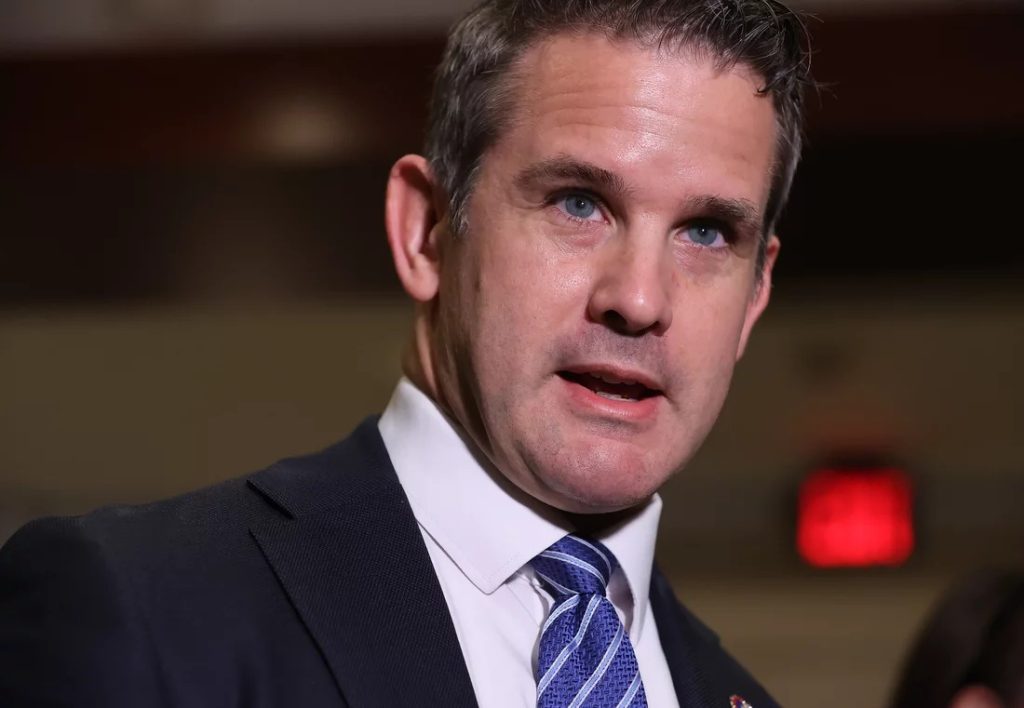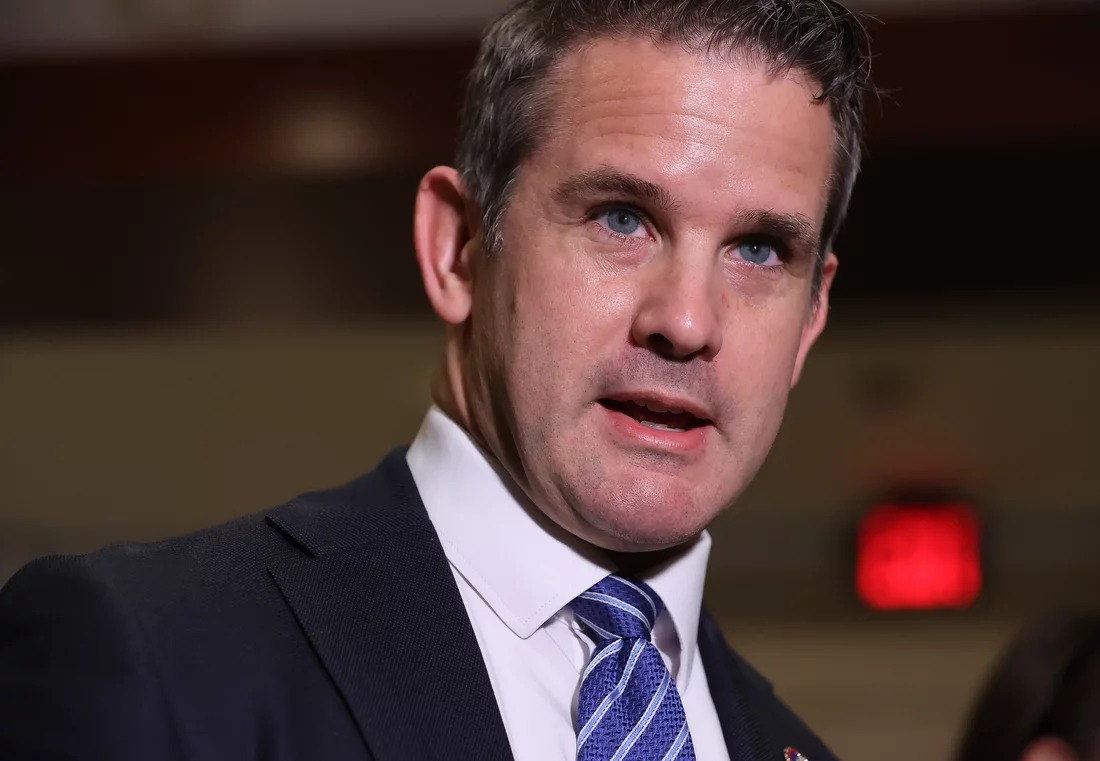Advertisements
In a striking display of political realignment, former Representative Adam Kinzinger, a Republican from Illinois, delivered a blistering critique of former President Donald Trump during a prime-time speech at the Democratic National Convention (DNC). Kinzinger’s comments marked a significant departure from party lines as he extended his support to Kamala Harris, despite his acknowledged policy disagreements with her.

Kinzinger’s speech was a candid acknowledgment of an “awkward alliance” with Democrats, driven by a commitment to uphold fundamental principles of truth, democracy, and decency. His support for Harris, a Democrat, signifies a bold move amidst a deeply polarized political climate.
A Stark Rejection of Trump
Advertisements
Kinzinger did not hold back in his condemnation of Trump, characterizing the former president as having “suffocated the soul of the Republican party.” In his address, Kinzinger highlighted a profound shift in his stance, reflecting deep disillusionment with Trump’s leadership. He described Trump as a “weak man pretending to be strong” and a “small man pretending to be big,” further accusing him of being a “faithless man pretending to be righteous” and a “perpetrator who can’t stop playing the victim.”
This severe critique underscores Kinzinger’s growing estrangement from the current Republican leadership, a sentiment echoed by other moderate Republicans who have similarly distanced themselves from Trump’s influence. The former representative’s words resonate with a segment of the GOP disillusioned by Trump’s approach and leadership style.
The Case for Kamala Harris
Despite his criticisms of Trump, Kinzinger emphasized that his endorsement of Kamala Harris was not without reservations. He acknowledged existing policy disagreements with Harris but maintained that these differences were minor compared to the fundamental principles at stake. “Whatever policies we disagree on pale in comparison with those fundamentals matters of principle, of decency, and of fidelity to this nation,” Kinzinger stated.
His endorsement is part of a broader effort by Harris’s campaign to attract moderate Republicans and independents disenchanted with Trump. The Harris campaign, along with the Biden campaign, has actively engaged with this demographic, seeking to bridge divides and build a coalition that transcends traditional party boundaries.
Rising Republican Support for Harris
Kinzinger is not alone in his departure from the GOP’s mainstream position. A growing group of Republicans, united under the banner “Republicans for Harris,” has emerged, signaling a notable shift in allegiance. This coalition reflects a broader trend of Republican voters and leaders reassessing their loyalties in light of Trump’s controversial presidency.
Recently, Kinzinger and his allies held an online rally to promote Harris, further illustrating the evolving political landscape. Their efforts are aimed at emphasizing the importance of core democratic values over partisan loyalty.
A Defining Moment in American Politics
Kinzinger’s speech represents a defining moment in American politics, showcasing the intense ideological battles within the Republican Party and the broader political spectrum. His dramatic shift highlights the challenges faced by both parties as they navigate a complex and evolving political environment.
As the 2024 election approaches, the impact of Kinzinger’s endorsement and the broader movement among moderate Republicans will be closely watched. The evolving dynamics underscore a critical juncture for American democracy, where traditional party affiliations are increasingly questioned in favor of deeper ideological and moral convictions.

